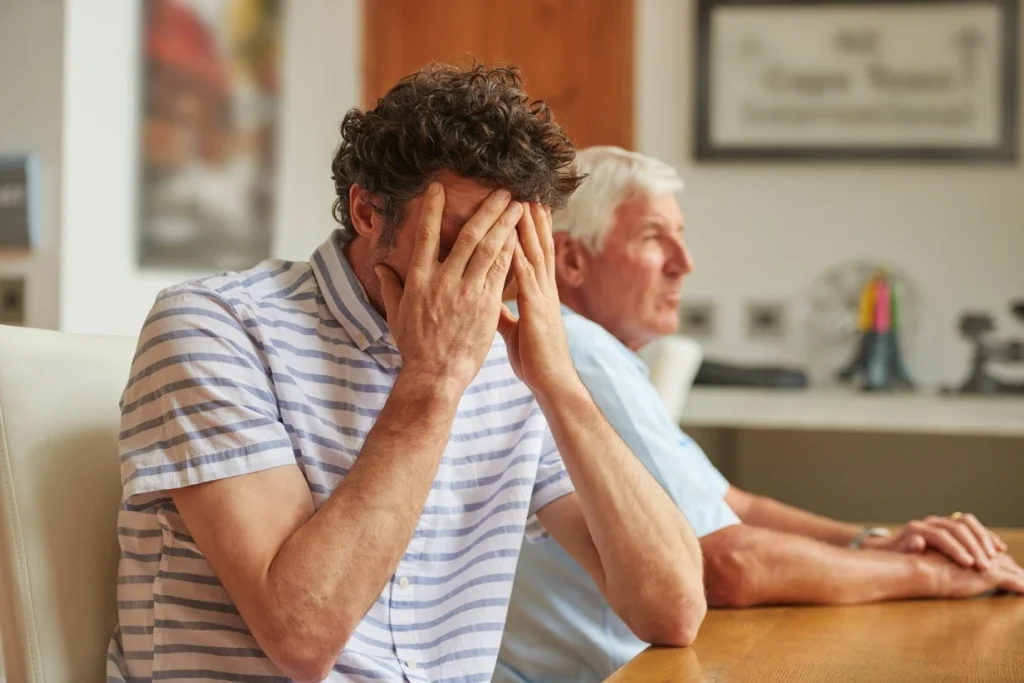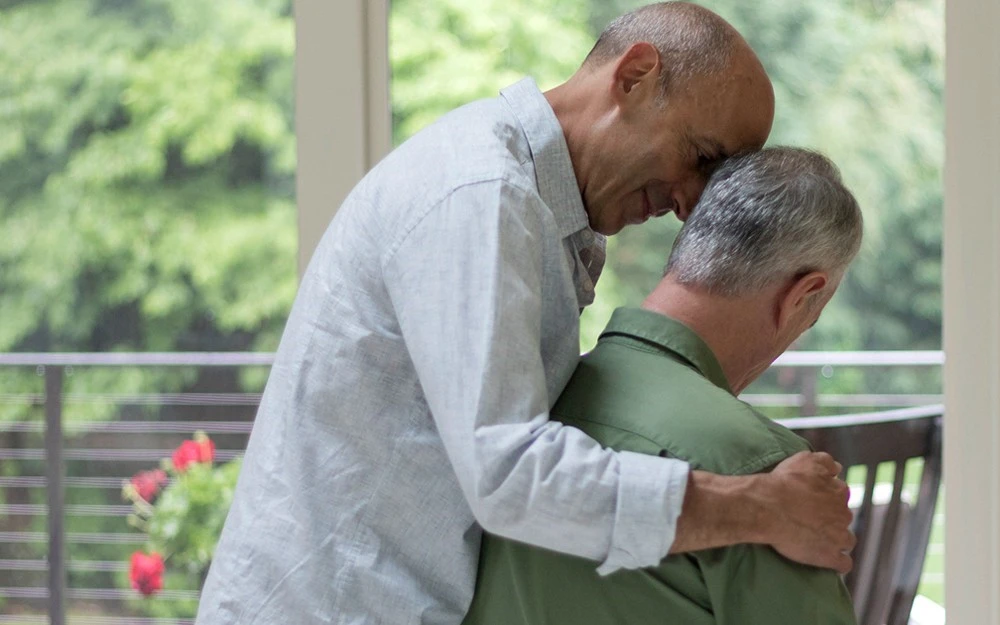
How to Overcome Caregiver Burnout in Elderly Care?
Caring for the elderly is undoubtedly a difficult and sometimes exhausting task that can lead to caregiver burnout. Caregiver burnout in elderly care refers to physical, mental, and emotional exhaustion. It is possible that caregivers may become indifferent or numb to the current situation due to enduring high pressure and stress, lack of access to help, high self-expectations, spending excessive energy and time, and the complex conditions of elderly individuals.
If we, as caregivers, are caring for a sick elderly person, it’s natural to want to dedicate all our time and energy to her/his care and provide the best possible conditions for him/her. However, we may simultaneously experience anger, loneliness, hopelessness, frustration, and rebellion. For this reason, it is very important to recognize the symptoms of these feelings and find a solution to reduce the workload and, consequently, reduce negative feelings and burnout.
In this blog from humanhealthmag, we will help you identify the warning indications of possible caregiver burnout and the damages resulting from in-home elderly care. We will also offer tips for better balance, managing anxiety in seniors and your caregiving lifestyle.
What Is Caregiver Burnout?
Caregiver burnout is a condition characterized by physical, mental, and emotional exhaustion. This situation shifts the caregiver’s attitude towards caring for the elderly from a positive, compassionate, and attentive perspective to a negative one, leading to neglect of the elderly person. Caregiver burnout in elderly care occurs when they do not receive the necessary support and provides services beyond their physical and financial capacity. Caregivers experiencing burnout exhibit symptoms such as fatigue, stress, anxiety, and depression. Many of these caregivers feel guilty if they dedicate time to themselves while caring for their elderly parents.

What Are Some Indications of Possible Caregiver Burnout in Elderly Care?
The early signs of caregiver burnout in elderly care include a high level of irritability, excessive fatigue, and feelings of anger and frustration. Financial concerns and how to manage expenses may also contribute to this condition. Other signs of caregiver burnout include the following, which you may have experienced during caregiving:
- Mental and physical fatigue
- Withdrawal from socializing with friends and other family members
- Lack of interest in previously enjoyable activities
- Changes in appetite and weight
- Changes in sleep patterns
- Increased amount of sleep
- Irritability
- Feeling unwell
- Physical symptoms such as headaches or body aches
- Feelings of helplessness, despair, and hopelessness
- Lack of energy to perform new or even everyday activities
- Excessive use of alcoholic beverages and tranquilizers
- Excessive smoking
- Lack of control and management of emotions
- Feeling anxious and tense in the presence of the sick elderly person
- Lack of concentration
If we identify the above symptoms in ourselves, we should try to resolve the problem and create a balance between our personal life and caring for our beloved elderly person; because ignoring and denying the signs of burnout will not only not fail to improve our mental condition, but may also lead to aggravation of the symptoms.
Why Do Elderly Caregivers Experience Burnout?
It is no secret that caring for a sick elderly person is accompanied by significant stress and tension for the caregiver. Elderly caregivers often neglect their own physical and mental health due to the demands of caring for their elderly loved ones. Various factors can contribute to caregiver burnout and exacerbate feelings of stress in them, which we will briefly mention the causes of caregiver burnout in elderly care:
Role Confusion
The intersection of the caregiving role with other roles such as motherhood, being a spouse, etc., can be confusing for the caregiver and make it difficult for them to balance these roles. Many elderly individuals may suddenly require care following an illness.
During this time (role confusion), spouses, children, and other individuals who take on the responsibility of caring for the elderly person may feel confused about their roles. It is difficult for these individuals to separate their roles as spouse, child, caregiver, and friend.

Excessive and Unreasonable Expectations of Oneself
In some situations, caregivers try hard to improve the elderly person’s condition, which may seem somewhat unrealistic in the case of progressive diseases such as Parkinson’s and Alzheimer’s. As the disease progresses, caregivers may feel like they have failed in their caregiving efforts.
As a caregiver, while looking after an elderly person, we might expect miracles from our care and dedicate all our time and energy to this matter. However, we must consider that, for example, in caring for an elderly person with Parkinson’s or dementia, we can only make their situation somewhat easier with parkinson’s disease equipment and with the least amount of stress or agitation through optimal and principled care.
Excessive Expectations of Others
Sometimes, the sick elderly person or other family members may have unreasonable expectations of the caregiver. If one of the family members neglects their caregiving responsibilities or fails to fulfill them, the consequences will fall on the primary caregiver. It further contributing to caregiver burnout in elderly care.
Lack of Control
After some time, many caregivers experience a lack of financial resources, insufficient caregiving skills, and inadequate planning abilities, leading to feelings of hopelessness in their caregiving.
Other Causes of Caregiver Burnout in Elderly Care
Many caregivers fail to recognize when they are experiencing burnout and eventually reach a stage where they cannot function effectively and may even harm themselves physically and mentally.
How to Prevent Caregiver Burnout in Elderly Care?
In-home elderly caregivers should be aware of the signs of their own burnout. Below are some tips on managing and preventing caregiver burnout for individuals providing care for their elderly loved ones at home.
Ask for Help from Others
To prevent burnout and maintain optimal performance in caregiving, it is necessary to seek help from other family members and even hire a nurse if needed. Remember that you are not capable of handling all tasks alone. Therefore, it is essential to ask your friends and family members for help in caring for your loved ones. No one can truly do this alone. Asking for help and using home safety equipment for elderly doesn’t make you a bad caregiver. Whether it’s with small tasks or a schedule, your friends, family, and employer want to see you at your best!
Receive Support
Being part of a supportive group or talking about the caregiving process, your experiences, and the difficulties you face can help you emotionally. Otherwise, seek professional counseling. Rest assured that talking and sharing your problems with a friend or psychologist will significantly help reduce your stress levels.

Be Honest with Yourself
Be aware of your abilities, what you can do, and what you are not capable of doing. Perform the tasks you can handle and delegate the rest to others. Talk to others about tasks that may create stressful situations for you and develop a specific plan for their execution. Being realistic about caregiving is very important. Keep in mind that our abilities as human beings are limited. By setting a care schedule with other family members, we can share the burden of responsibility, provide the best conditions for our life hero, and reduce burnout.
Pay Attention to Your Feelings and Needs
When you are caring for your loved ones, it is easy to neglect your own needs. However, continuous attention to your own needs is crucial for your well-being. Rest and make time for yourself. Spend time with friends and family or engage in relaxing activities such as reading, getting a massage, or taking a long bath.
Take Care of Your Health
Stay in regular contact with your doctor. Seek medical attention promptly whenever you feel unwell. If you are sick, entrust caregiving to someone else. It is also best to develop your caregiving skills and knowledge to cope with current situations and unforeseen events.
Make a List of Tasks!
There are many things to do every day, and staring at the whole list can seem exhausting. Break down your day into smaller pieces or tasks. Take a moment and celebrate small victories.
What Happens If We Ignore Caregiver Burnout in Elderly Care?
Certainly, if you don’t treat your stress and fatigue, your symptoms can often become worse. Excessive exposure to stress can often lead to adverse effects on your physical and mental health as well. Caregivers are more likely to experience symptoms of anxiety and depression.
Remember that anxiety and depression significantly increase the risk of developing other health issues such as heart disease and stroke. Stressed caregivers have weaker immune systems and spend more day sick with colds or the flu. A weakened immune system can also make vaccines less effective and even shorten recovery time after surgeries.
Furthermore, unnecessary stress causes weight gain in most people. Obesity can also increase the risk of developing other health problems, including heart disease, stroke, and diabetes. Caregivers of patients with Alzheimer’s disease are at a higher risk for short-term memory and concentration problems.
Concluding Remarks
Providing continuous care for the elderly can sometimes become a difficult and exhausting task. One of the most effective ways to prevent mental distress while caring for an elderly person is to have a detailed plan. A proper care plan includes considering diet, hygiene care, environmental cleanliness, and the frequency of these tasks throughout the days of the week.
Additionally, by finding ways to reduce the workload, such as asking for help from other family members or even hiring a nurse, we can create the best possible situation for ourselves and our beloved elderly person. Stress management techniques such as listening to music, walking in nature, or sharing problems with a friend can be very helpful in controlling the fatigue that arises. Exercising is one way in overcoming caregiver burnout in elderly care that can help the physical and mental health of us. Yoga is one of the best exercises for relaxation and regaining lost energy.

Frequently Asked Questions
What Are the Primary Signs of Caregiver Burnout in Elderly Care?
Increased irritability, persistent fatigue, and feelings of anger or frustration. You might also notice a withdrawal from social activities, a lack of interest in hobbies, changes in appetite or sleep patterns, and an overall feeling of being overwhelmed and emotionally drained. Physical symptoms like headaches or body aches can also manifest.
What Are the Main Factors that Contribute to Caregiver Burnout in Elderly Care?
Several factors can lead to caregiver burnout. These include role confusion (struggling to balance being a caregiver with other roles), unrealistic expectations about the caregiving outcome, a feeling of lack of control over the situation and resources, placing unreasonable pressure on oneself to provide perfect care, and a failure to recognize the early signs of burnout.
How Can I Prevent Burnout While Caring for an Elderly Loved One at Home?
It’s crucial to ask for help from other family members or consider professional help. Joining support groups or seeking counseling can provide emotional support. Being realistic about what you can manage and prioritizing your own needs, including rest, hobbies, and social connections, is essential.
What Are the Potential Consequences of Ignoring Caregiver Burnout in Elderly Care?
Ignoring caregiver burnout can have serious repercussions for both the caregiver and the person they are caring for. Untreated stress and exhaustion can lead to anxiety, depression, a weakened immune system, and an increased risk of other health problems. It can also negatively impact the quality of care provided, potentially leading to neglect or even harm of the elderly individual.
